Hydroquinone For Skin: How To Use It, Benefits, & Side Effects
Explore how safe this skin-brightening chemical is before its use on your skin.
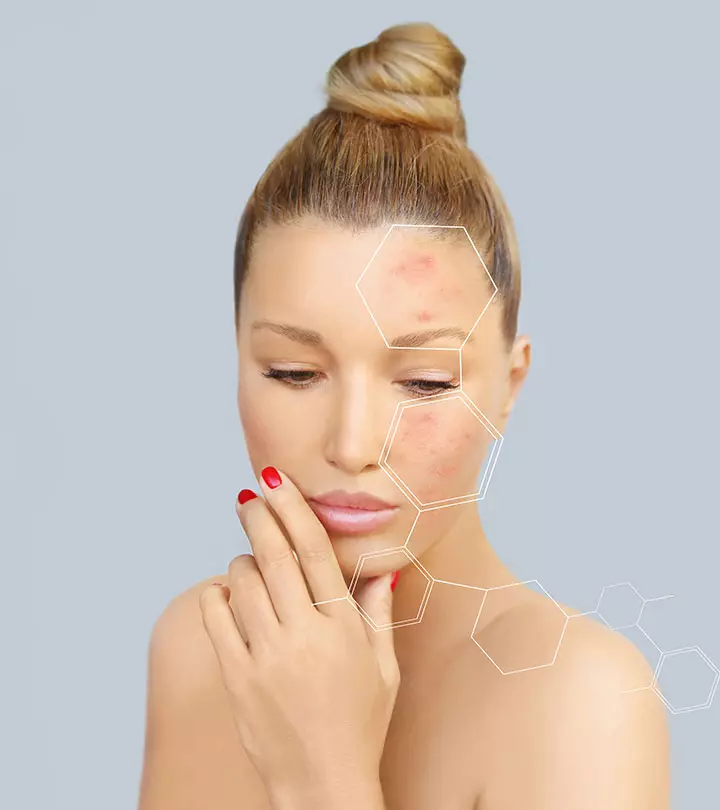
Image: Shutterstock
Hydroquinone is a skin brightening chemical. It is commonly used in creams, lotions, gels, and emulsions. Most of you may have used hydroquinone for skin, especially if you have pigmentation issues and stubborn dark spots.
Hydroquinone is often considered unsafe for the skin and has been subject to debate for years, mostly regarding its damaging effects. However, if you are confused about hydroquinone’s benefits, safety, and efficiency, we can help. This article explains everything about hydroquinone. Keep reading to learn more about its benefits, side effects, safety concerns, and how to use it. Scroll down.
 Know Your Ingredient: Hydroquinone
Know Your Ingredient: HydroquinoneWhat Is It?
A topical skin-lightening chemical used to treat hyperpigmentation.
What Are Its Benefits?
It works as a skin lightener by inhibiting the activity of tyrosinase.
Who Can Use It?
Individuals who suffer from uneven skin tone, melasma, and hyperpigmentation.
How Often?
It should be applied twice a day for 2-6 months.
Caution
Using it for more than 6 months can lead to skin dryness, itchiness, redness, and irritation.
In This Article
What Is Hydroquinone?
Hydroquinone is a chemical widely found in topical skin-lightening treatments, moisturizers, and cleansers. It is used in a concentration of 2% with other products to help lighten dark spots (also known as hyperpigmentation). It also may help treat melasma (a skin condition caused due to overproduction of cells that make your skin color) that may otherwise result in discoloration, dark spots, or patches.
This depigmenting agent was founded in the 1800s. Hydroquinone has been marketed in skin care and skin-lightening products for almost 50 years and remains the most commonly used lightening agent in this category (1). The chemical reacts with the melanin-producing cells in your skin and helps treat dark spots and pigmentation. However, the results are not immediate and they may take a few weeks to a few months to show.
 Trivia
TriviaThe use of hydroquinone may lead to adverse effects. Find out more in the next section.
Key Takeaways
- Hydroquinone is a chemical ingredient commonly found in skin brightening creams and lotions.
- It helps lighten dark spots and blemishes, reduces the signs of melasma and hyperpigmentation, and brightens your overall skin tone.
- While it is safe for normal and oily skin types, it may irritate dry and sensitive skin.
- Consulting a dermatologist before using any skin lightening cream or treatment is highly recommended.
Is Hydroquinone Safe For Your Skin?
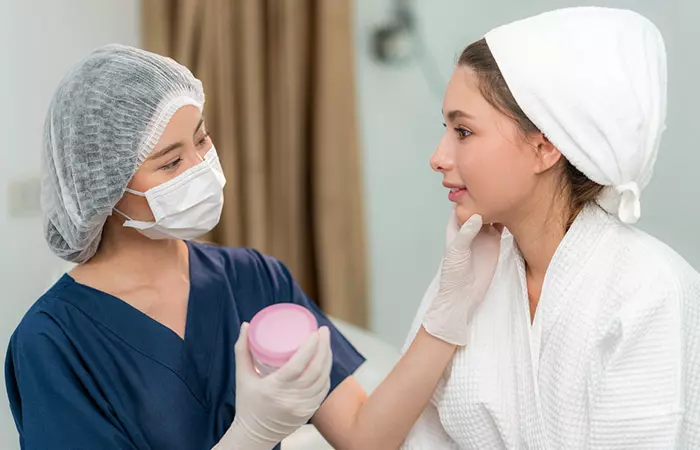
Although hydroquinone in the right concentrations seems to be compatible with most skin types, there are a few exceptions. Individuals with dry skin might experience increased dryness and irritation when exposed to this ingredient, though the effect wears off once you get accustomed to it. Those with normal or oily skin might not experience any issues at all.
Hydroquinone may not be ideal on dark skin as this ingredient seems to work best on fair skin tones. Hence, it is better to consult your dermatologist before using hydroquinone. In some cases, the ingredient was also found to worsen existing hyperpigmentation.
That said, hydroquinone does have certain benefits for your skin. We will explore them in the following section.
Benefits Of Hydroquinone For Your Skin
1. Treats Hyperpigmentation
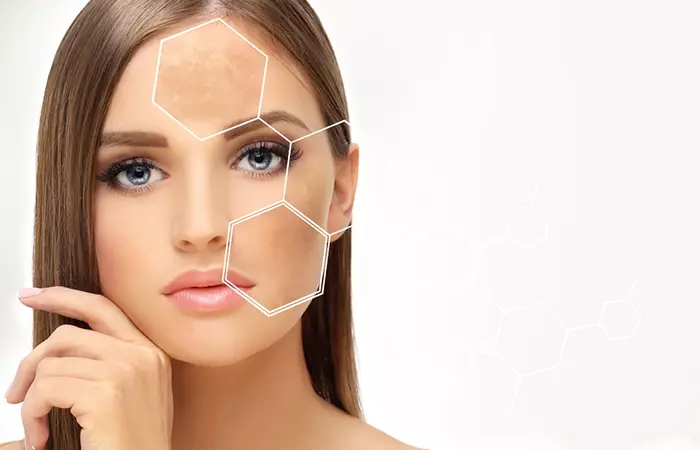
Hydroquinone is a skin lightener and is most effective in treating hyperpigmentation and dark spots. Acne, aging, and melasma often leave stubborn marks on the skin that are difficult to deal with. Hydroquinone is considered the gold standard in dermatology for treating such issues (2). It reduces the production of melanin, a skin pigment that lends it a dark shade.
2. May Help Treat Melasma
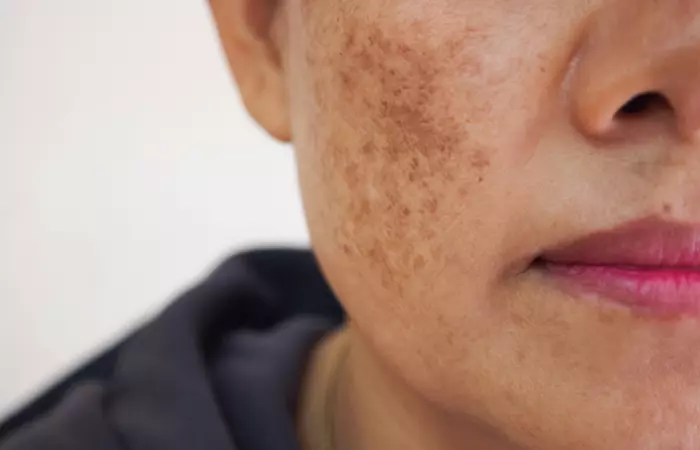
Melasma causes dark patches on skin. It is often triggered by UV light exposure combined with hormonal changes while using birth control pills or during pregnancy. The focus points are typically the forehead, upper lip, and cheeks. Skin products with hydroquinone may help reduce melasma (3).
3. May Even Out Your Skin Tone
Hydroquinone helps lighten the disproportionately darkened areas of your skin and may help even out your overall skin tone.
These are the few major benefits of hydroquinone. But how does it work?
A blogger describes her experience of using hydroquinone to even out scars on her skin: “So, I started using a topical hydroquinone 4% cream despite the risks that I heard of in order to lighten my scars and overall skin tone.” She adds, “So far, I’ve seen an improvement (well not a major improvement as I expected), and I’m going to stick with it just like I did with retinoids to clear up my acne. That’s something I learned with experience (i).”
How Does Hydroquinone Work?
Hydroquinone works by inhibiting the activity of tyrosinase, the enzyme necessary for melanin production (4). It decreases the number of melanocytes (cells that produce melanin). The ingredient takes about four to six weeks to take effect. It may take several months of consistent use before you see the expected results.
 Quick Tip
Quick TipMost wonder if hydroquinone is a skin bleaching cream. In reality, it does not bleach the skin. It simply restores the user’s skin to their baseline skin color.
Side Effects Of Hydroquinone
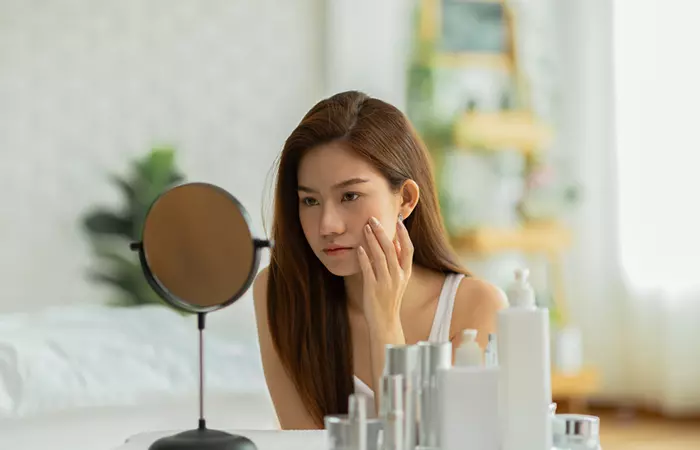
There is insufficient clinical evidence to substantiate the harmful effects of hydroquinone on humans. Minor effects are still a possibility, as with all medications, and can differ from person to person. Some of the side effects of hydroquinone are listed below:
- Skin dryness
- Itchiness
- Redness
- Irritation
It is not recommended to apply hydroquinone for any longer than 6 months continuously at any given time. In rare cases, application of hydroquinone may cause erythema, xeroderma, and ochronosis (a blue-black discoloration) (5). However, these effects were observed only in patients using high concentrations of hydroquinone for extended periods.
It is advised that people only use a small amount of the product on their face and avoid getting it in their eyes. We have further elaborated on the right use of hydroquinone in the following section.
How To Use Hydroquinone
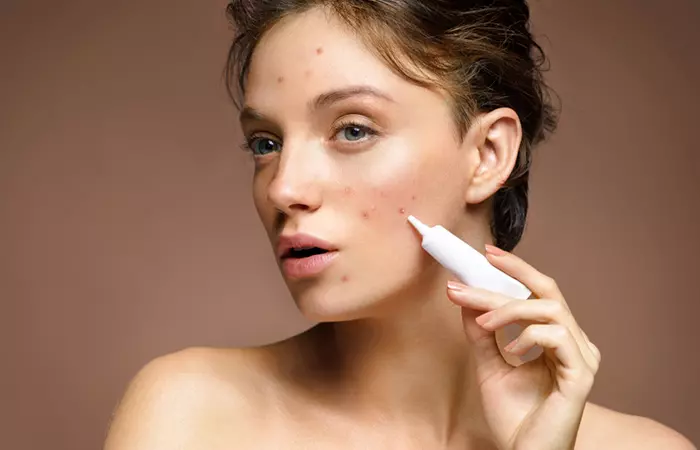
Use hydroquinone only under prescription by a dermatologist. Regular check-ins help detect and prevent side effects, especially for people with sensitive skin or those applying higher concentrations. Hydroquinone is available in 2% over the counter or as 4% prescribed (5). It is available as a cream, emulsion, gel, or solution.
Ensure you conduct a patch test before going ahead with a particular product. A patch test will help determine how the product reacts with your skin:
- Apply the product to a small area on your forearm.
- Cover the area with a Band-Aid.
- Wash your hands properly to prevent the ingredient from lightening your hands or staining your clothes.
- Wait for 24 hours.
- Discontinue use if you feel any discomfort or irritation on the tested area.
But if you observe no adverse reactions, the product is good to go. Follow these steps for 3 to 4 months for the desired results.
- Clean your skin and remove any dirt before applying the product. Hydroquinone is only effective if it penetrates deep.
- Apply a thin layer with your fingertips and rub it over the affected area. Repeat twice a day.
- Make sure to evenly apply the product to the entire face to prevent uneven pigmentation.
- Use concurrently with sunscreen to protect the skin from UV rays.
Skin products containing hydroquinone can also be applied only on weekends or a few days of the week to prevent any complications. Short-term use of this ingredient is considered safe and effective compared to prolonged application. But if you’re looking for safer alternatives, take a look below.
Alternatives To Hydroquinone
Hydroquinone is a common skin-lightening agent, but its potential side effects have led many to seek alternatives for treating hyperpigmentation, dark spots, and melasma. Several effective alternatives include (6), (7), (8):
- Kojic Acid: It is derived from fungi and foods, and helps inhibit melanin production.
- Arbutin: It works as a mild, melanin inhibitor.
- Vitamin C (L-ascorbic acid): An antioxidant that brightens the skin and reduces pigmentation.
- Licorice Root Extract: It contains glabridin, which inhibits melanin production.
- Niacinamide (Vitamin B3): It improves skin barrier function and reduces dark spots.
- Retinoids: They stimulate cell turnover and fade dark spots over time.
- Azelaic Acid: It treats hyperpigmentation and reduces inflammation.
- Mulberry Extract: It helps inhibit melanin production.
- Tranexamic Acid: It is commonly used to treat melasma, discoloration, and hyperpigmentation.
Infographic: Best Alternatives For Hydroquinone
Hydroquinone is a skin-brightening chemical that interacts with melanin-producing cells in the skin to reduce pigment production. But long and chronic use of this chemical may cause side effects in some people. Worry not! We have compiled a list of alternatives to hydroquinone that are easily available for use. Check out the infographic below for more information.

Illustration: StyleCraze Design Team
Hydroquinone is a cosmetic ingredient commonly used in creams and lotions that act as a topical treatment for reducing dark spots and melasma. It works by reducing tyrosinase activity, the enzyme responsible for melanin production. Although it is safe for use on normal or oily skin, individuals with dry skin may initially experience increased irritation and dryness. While there is limited scientific evidence, high concentrations of hydroquinone in your skin may result in redness, discoloration, or itchiness. Available as a gel or cream, make sure that you clean your skin properly to ensure proper penetration of hydroquinone.
Frequently Asked Questions
Can I use Vitamin C and Hydroquinone together?
Yes. You can use vitamin C and hydroquinone together as both help fade spots and brighten the skin.
Is Kojic acid better than Hydroquinone?
Both are equally effective in fading hyperpigmentation. You can combine them to get the best results.
Does hydroquinone lighten skin permanently?
No, hydroquinone doesn’t lighten skin permanently. The results are temporary and may last for a couple of months.
Does hydroquinone remove tan?
Although hydroquinone may remove tan to some extent, it is not considered a safe option as it may negatively affect melanocytes. Instead, you can try safe options like vitamin C or alpha arbutin for skin tanning.
What is another name for hydroquinone?
Hydroquinone is also known as 1,4-dihydroxybenzene
Is arbutin better than hydroquinone?
Yes, arbutin is a safe alternative to hydroquinone, although both show the same action of skin lightening. However, hydroquinone exhibits cytotoxicity (9), while arbutin is non irritating and does not exhibit cytotoxicity (10).
Illustration: Hydroquinone For Skin: How To Use It Benefits & Side Effects
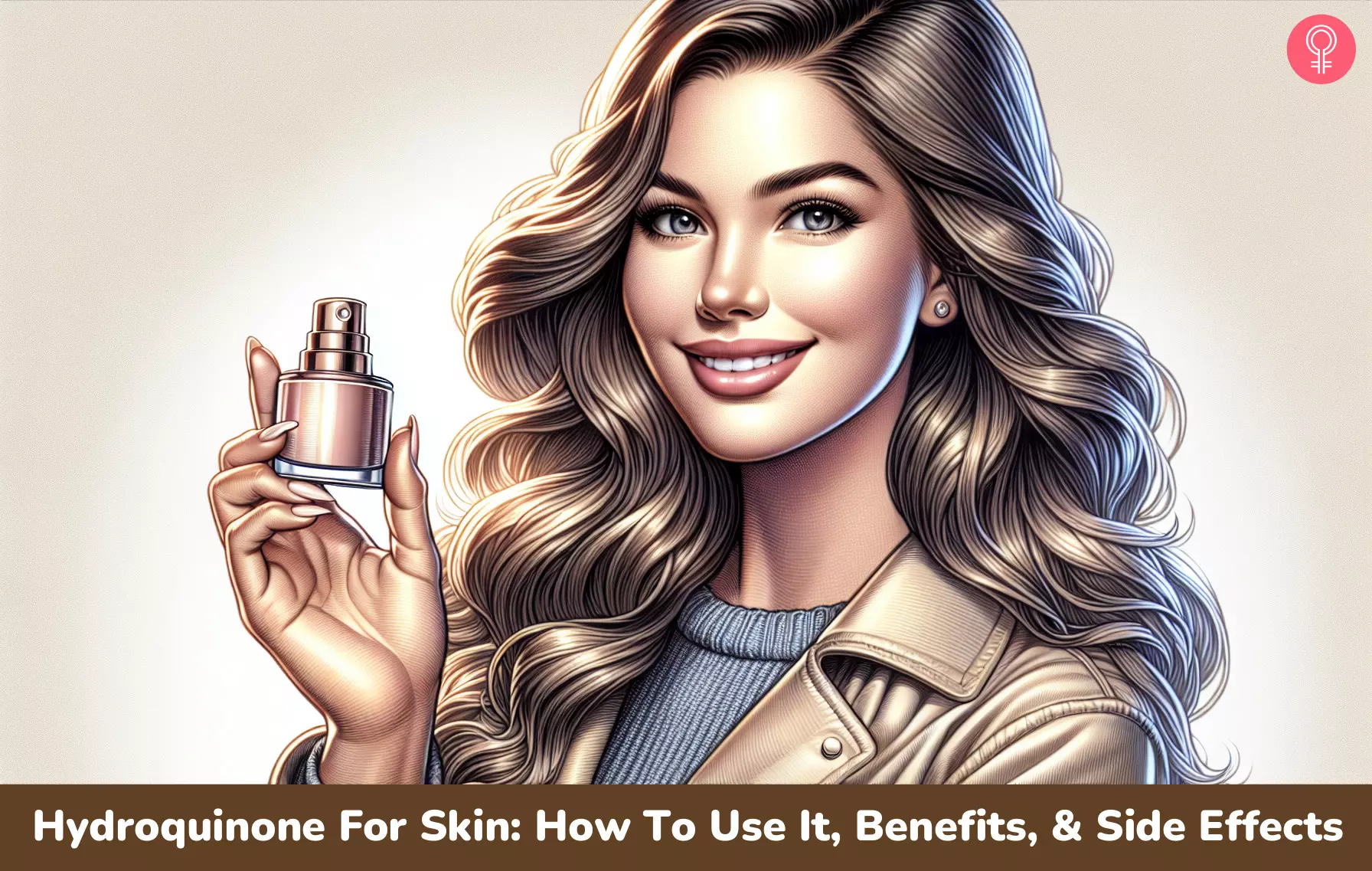
Image: Dall·E/StyleCraze Design Team
Check out the video below and explore the power of hydroquinone in fading hyperpigmentation. Witness the remarkable journey of a 3-month transformation using 4% hydroquinone and uncover its potential for achieving even-toned, radiant ski. Watch it now!
Personal Experience: Source
StyleCraze's articles are interwoven with authentic personal narratives that provide depth and resonance to our content. Below are the sources of the personal accounts referenced in this article.
i. Hydroquinone (for acne scars) Review.
https://hairandskincaretips.blogspot.com/2013/04/hydroquinone-for-acne-scars-review.html
References
Articles on StyleCraze are backed by verified information from peer-reviewed and academic research papers, reputed organizations, research institutions, and medical associations to ensure accuracy and relevance. Read our editorial policy to learn more.
- Hydroquinone for skin lightening.
https://pubmed.ncbi.nlm.nih.gov/20095963/ - Hyperpigmentation Therapy: A Review
https://www.ncbi.nlm.nih.gov/labs/pmc/articles/PMC4142815/ - TOPICAL TREATMENT OF MELASMA
https://www.ncbi.nlm.nih.gov/labs/pmc/articles/PMC2807702/ - A comprehensive review on tyrosinase inhibitors
https://www.ncbi.nlm.nih.gov/labs/pmc/articles/PMC6327992/ - Hydroquinone
https://www.ncbi.nlm.nih.gov/books/NBK539693/ - Cosmeceuticals for Hyperpigmentation: What is Available?
https://www.ncbi.nlm.nih.gov/pmc/articles/PMC3663177/ - Dual Effects of Alpha-Hydroxy Acids on the Skin
https://www.ncbi.nlm.nih.gov/pmc/articles/PMC6017965/ - Efficacy of Alpha and Beta Hydroxy Acid Chemical Peels in Postacne Pigmentation: A Double Blinded, Randomized, Controlled Trial
https://www.ncbi.nlm.nih.gov/pmc/articles/PMC8903232/ - Hydrolysis of arbutin to hydroquinone by human skin bacteria and its effect on antioxidant activity
https://pubmed.ncbi.nlm.nih.gov/18789053/#:~:text=Abstract,cytotoxicity%2C%20nephrotoxicity%2C%20and%20genotoxicity - Inhibitory effects of alpha-arbutin on melanin synthesis in cultured human melanoma cells and a three-dimensional human skin model
https://pubmed.ncbi.nlm.nih.gov/15056856/
Read full bio of Dr. Priya Gill
Read full bio of Arshiya Syeda
Read full bio of Ramona Sinha
Read full bio of Medha Deb





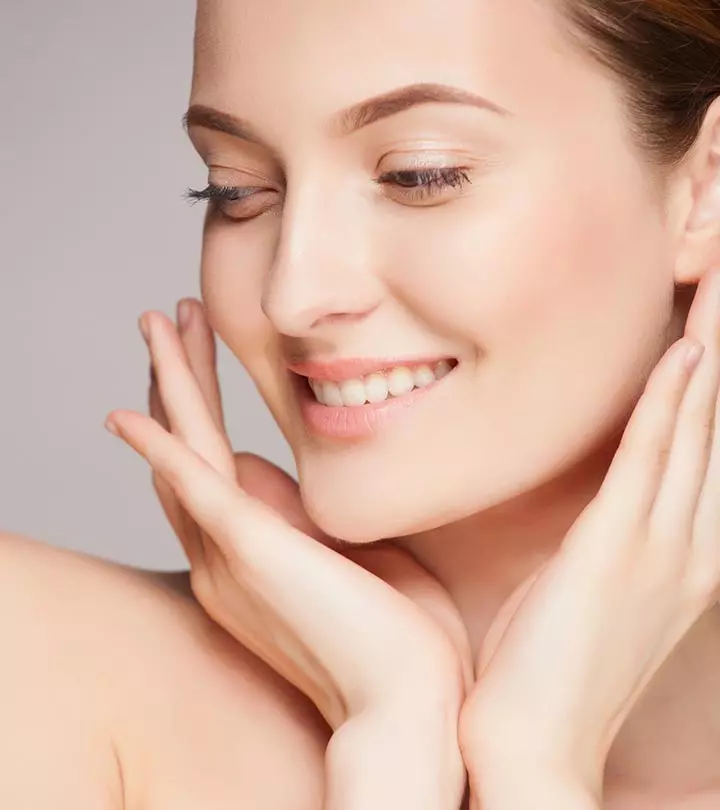
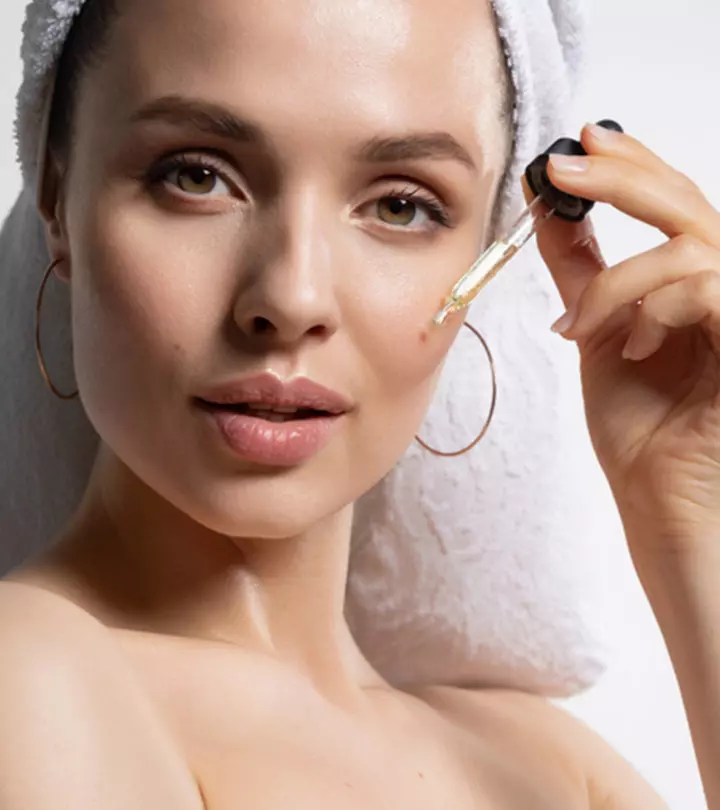
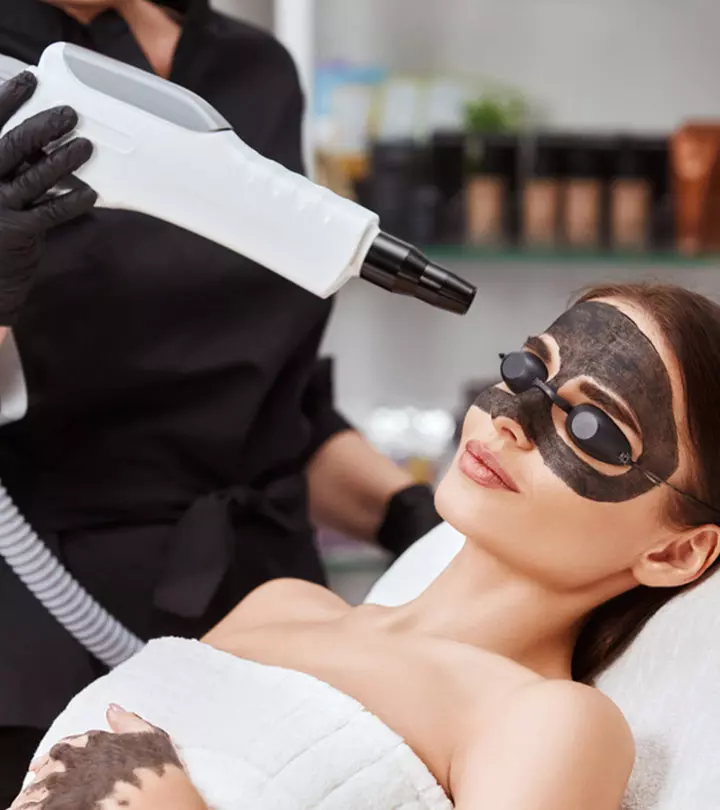
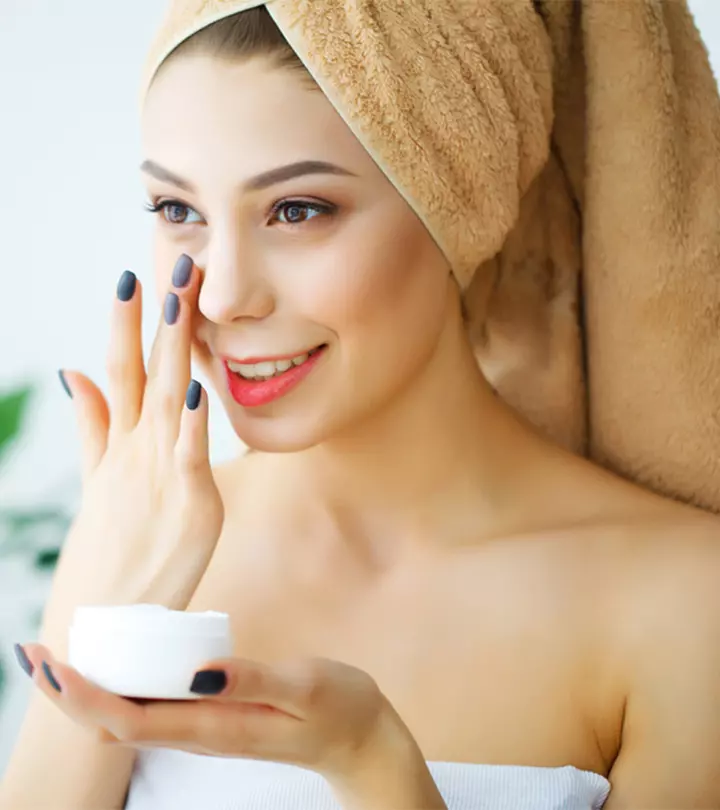
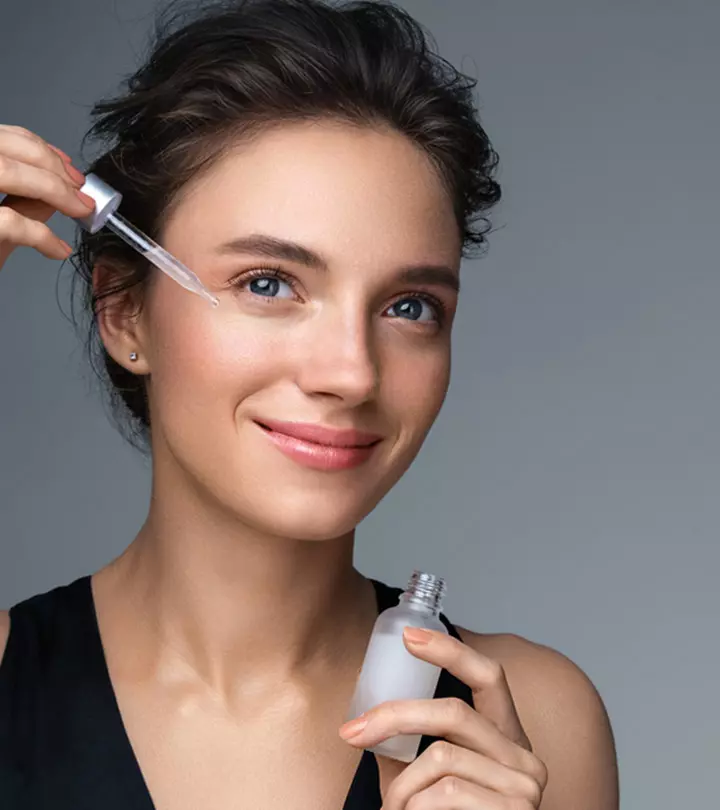
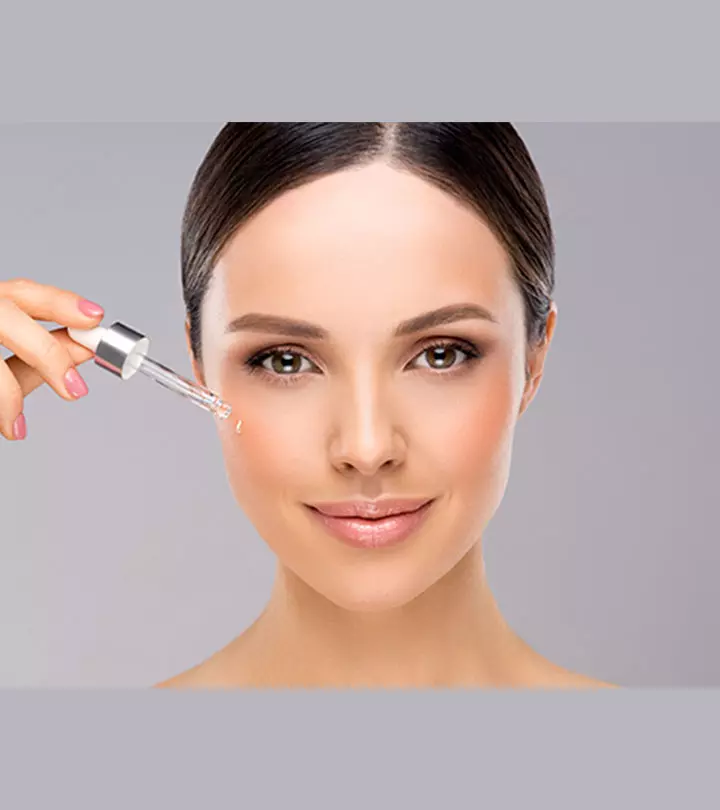
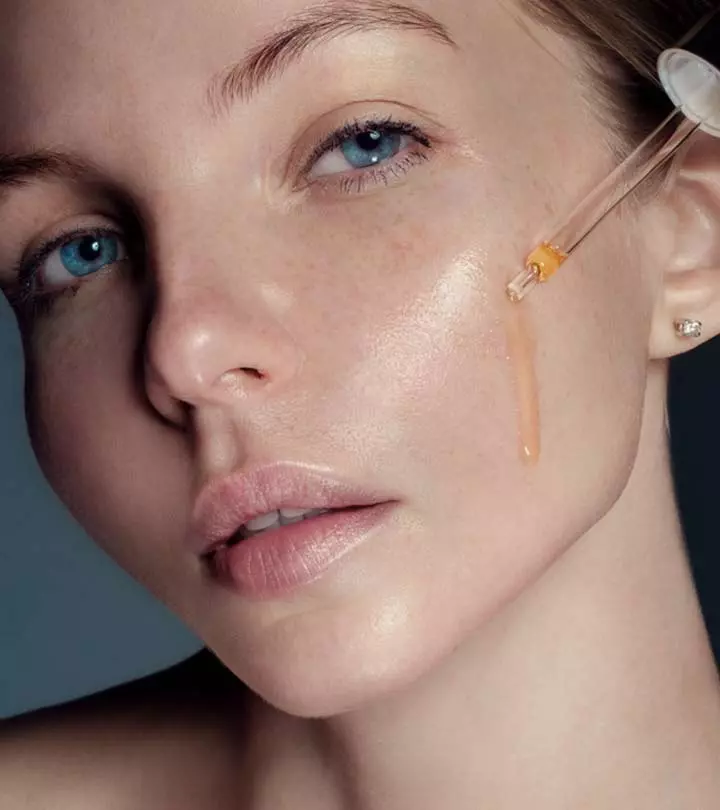

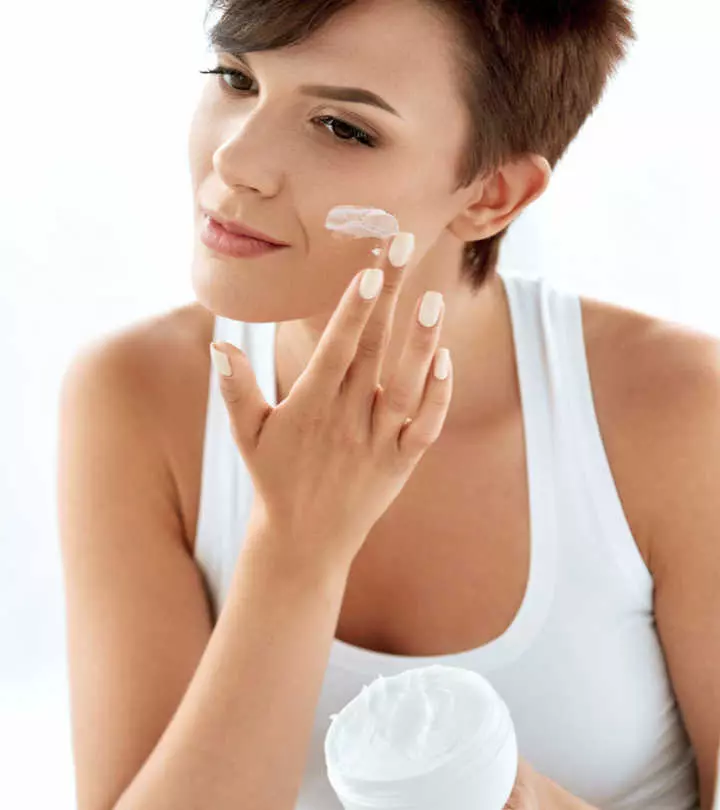
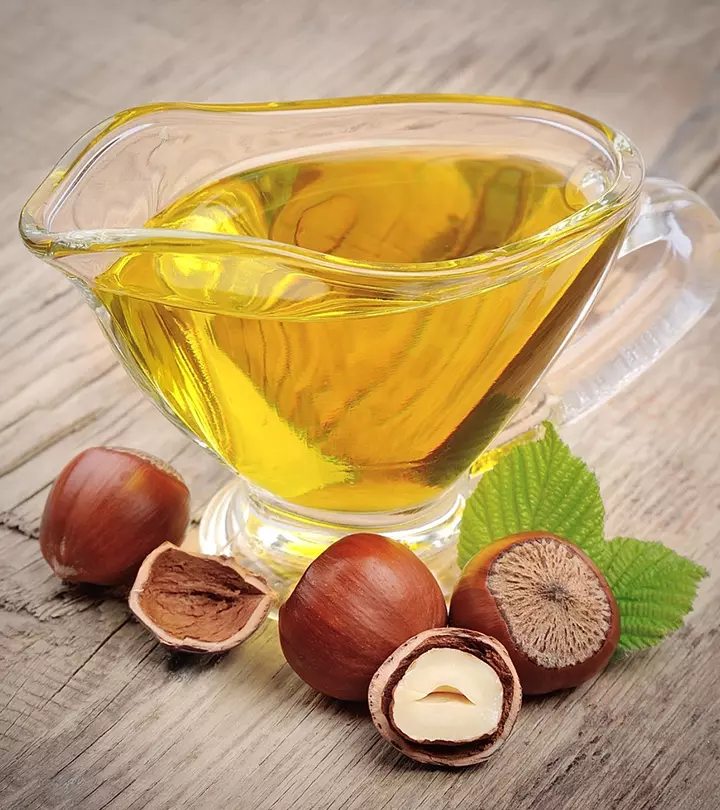
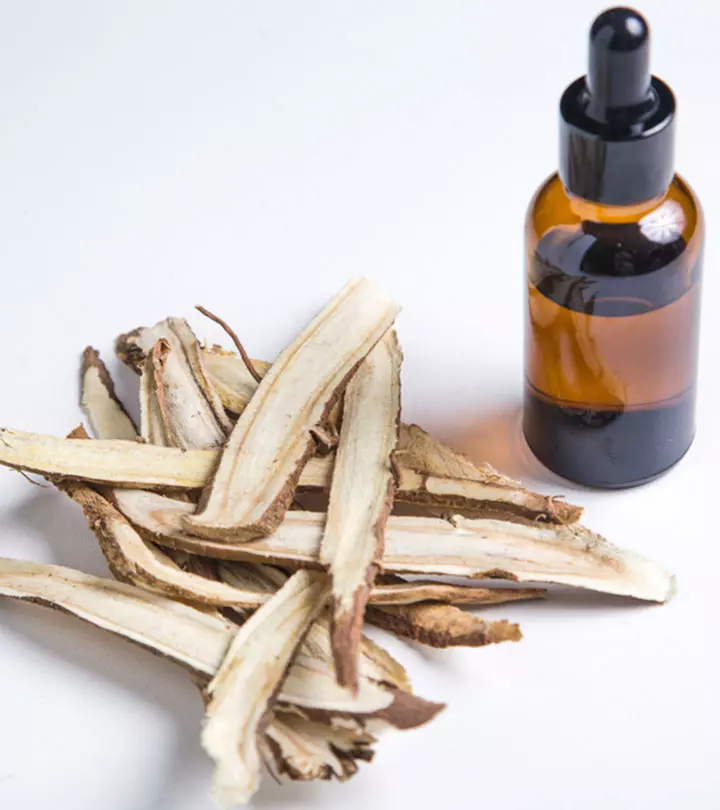


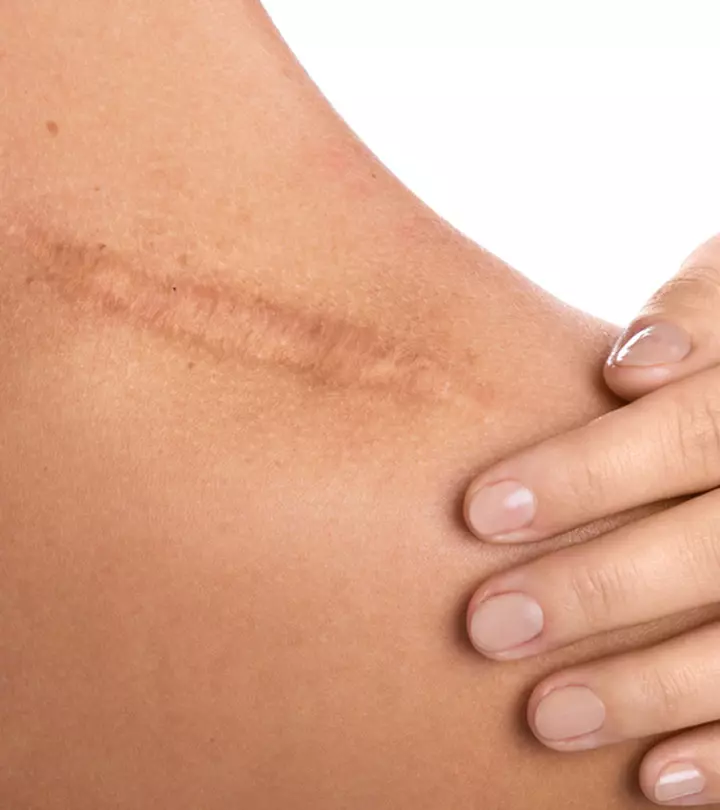
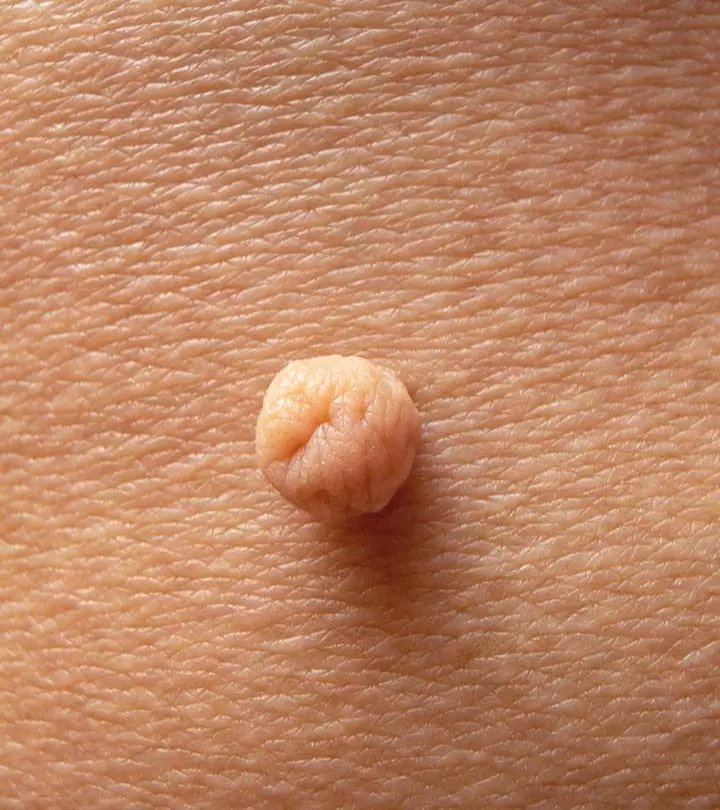
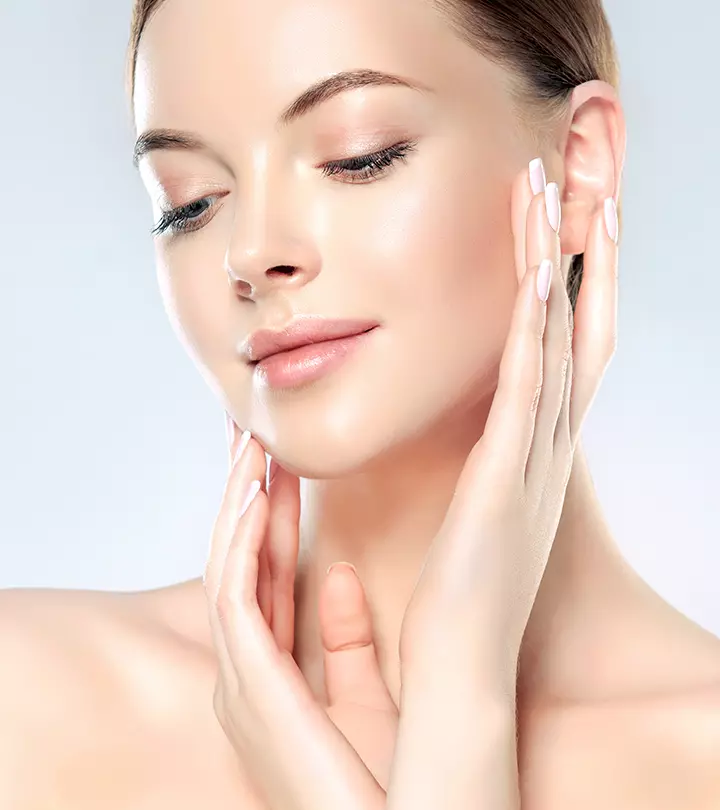

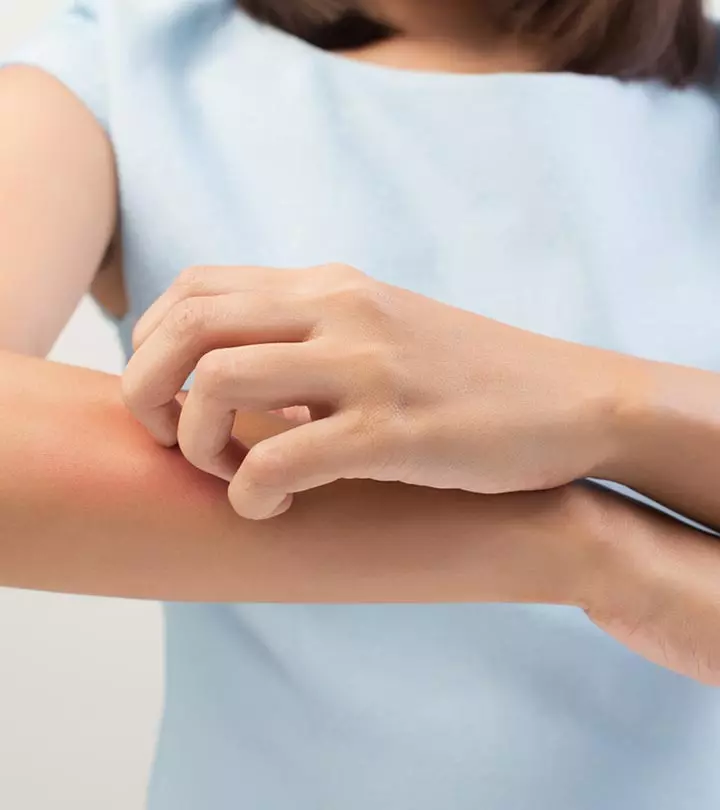

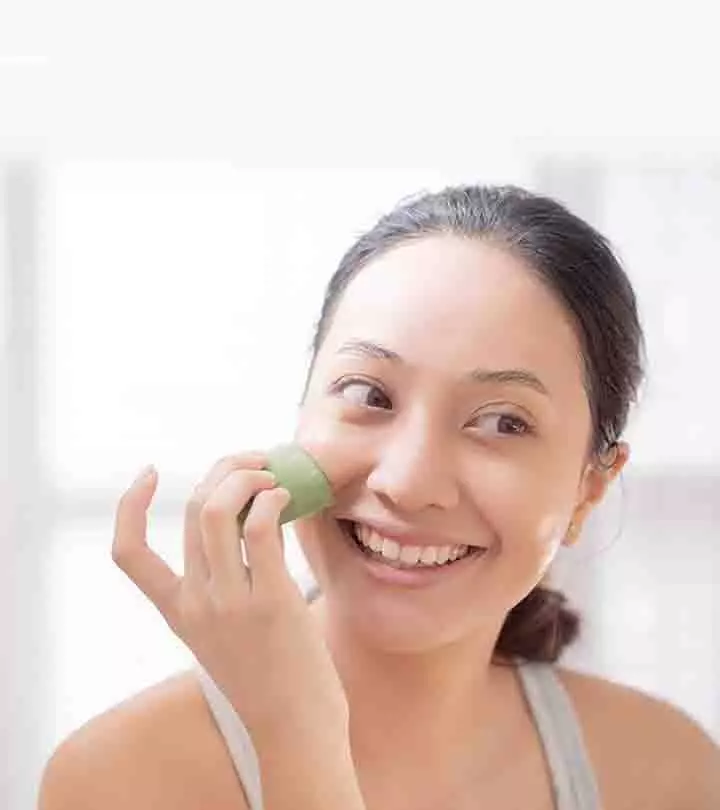

Community Experiences
Join the conversation and become a part of our empowering community! Share your stories, experiences, and insights to connect with other beauty, lifestyle, and health enthusiasts.